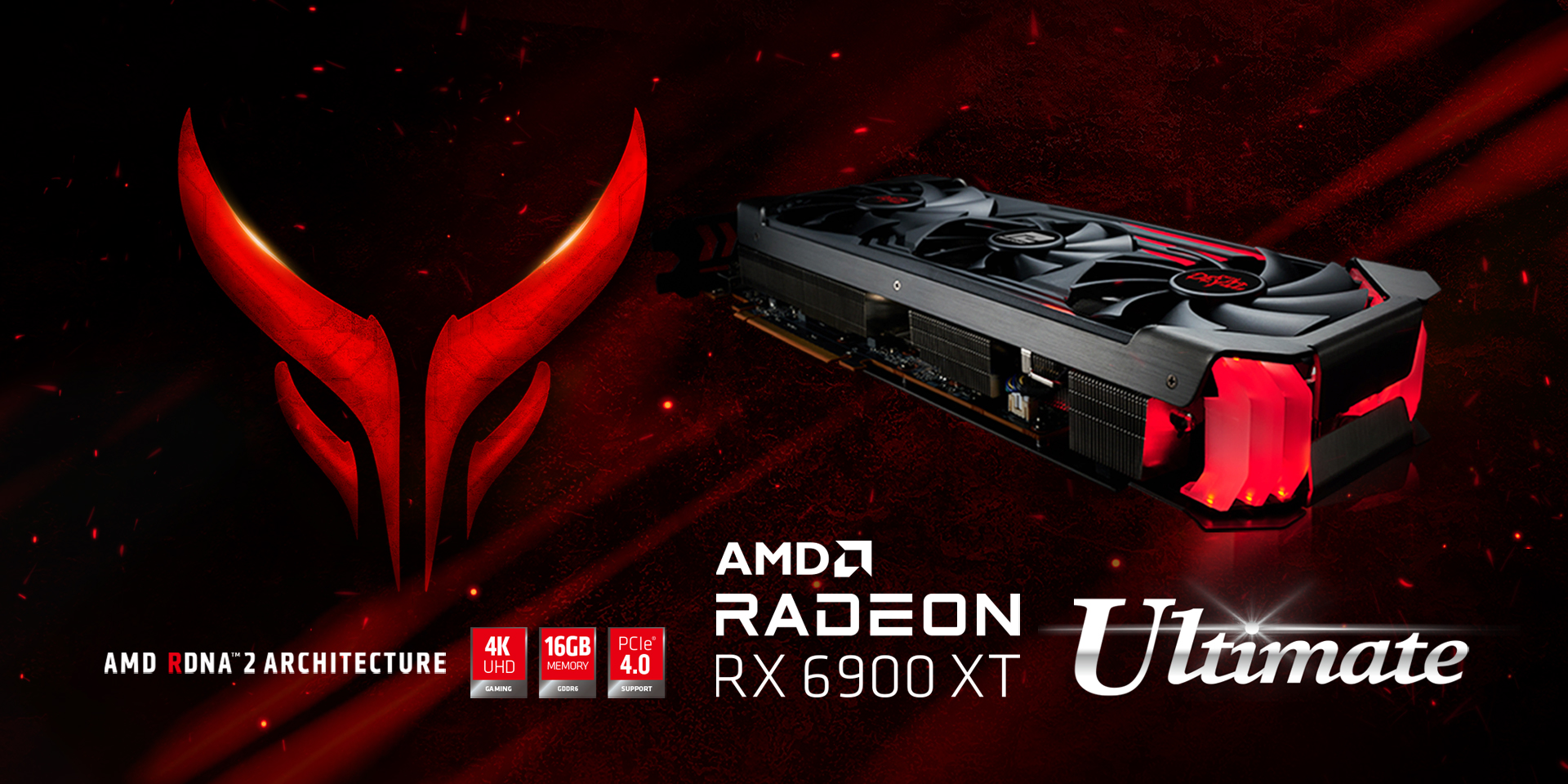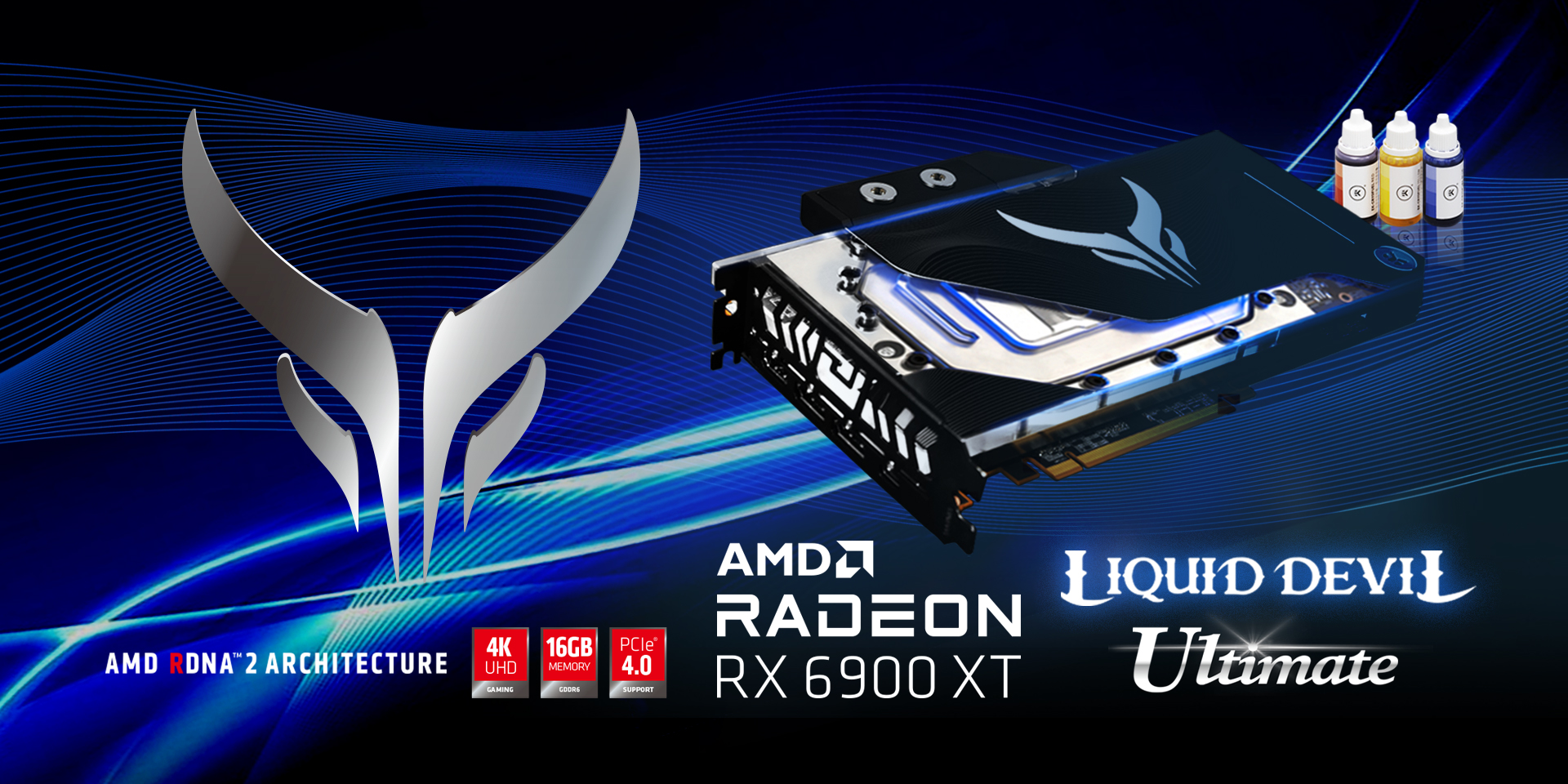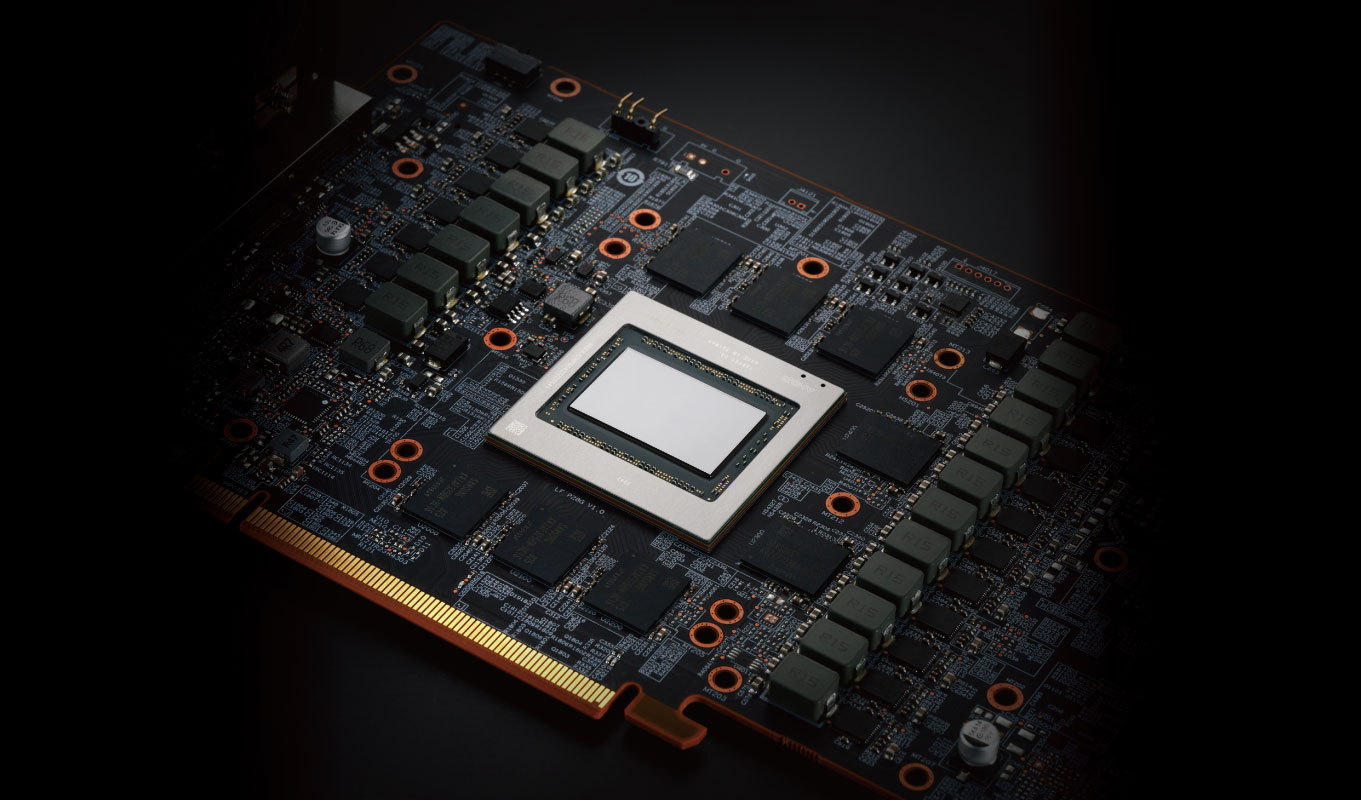PowerColor's 'Ultimate' Red Devil & Liquid Devil RX 6900 XT Get Cherry Picked GPUs
As if regular versions are not fast enough.
Get Tom's Hardware's best news and in-depth reviews, straight to your inbox.
You are now subscribed
Your newsletter sign-up was successful
PowerColor has unveiled Ultimate editions of its top-of-the-range Red Devil Radeon RX 6900 XT and Liquid Devil Radeon RX 6900 XT graphics cards with hand-selected GPUs that guarantee a great overclocking potential.
The new Red Devil Radeon RX 6900 XT Ultimate and Liquid Devil Radeon RX 6900 XT Ultimate use exactly the same custom PCB design with a 14+2-phase voltage regulating module (VRM) as well as three eight-pin auxiliary power connectors and cooling systems as their regular versions introduced earlier this year.
Their key difference of the Ultimate boards from their predecessors is frequency of the Navi 21 XTX GPU (5120 stream processors, 320 TUs, 128 ROPs, 80 RT units). The Red Devil RX 6900 XT Ultimate can boost its Navi 21 GPU to 2425 MHz, whereas the Liquid Devil RX 6900 XT Ultimate can boost its graphics processor to 2525 MHz. To put the numbers into context, AMD's reference Radeon RX 6900 XT does not go higher than 2250 MHz.
PowerColor's Red Devil Radeon RX 6900 XT Graphics Cards
| Row 0 - Cell 0 | Red Devil RX 6900 XT Ultimate | Red Devil RX 6900 XT | Radeon RX 6900 XT |
| Base | ? | ? | 1825 MHz |
| Game Silent | 2135 MHz | 2015 MHz | - |
| Game | 2235 MHz | 2105 MHz | - |
| Boost Silent | 2335 MHz | 2250 MHz | - |
| Boost | 2425 MHz | 2340 MHz | 2250 MHz |
In addition to higher clocks, the Red Devil Radeon RX 6900 XT Ultimate is programmed to deliver up to 303W to the GPU, whereas the Liquid Devil Radeon RX 6900 XT Ultimate can deliver up to 332W to the GPU in a bid to further increase their overclocking potential beyond what PowerColor offers out-of-box.
PowerColor's Liquid Devil Radeon RX 6900 XT Graphics Cards
| Row 0 - Cell 0 | Liquid Devil RX 6900 XT Ultimate | Liquid Devil RX 6900 XT | Radeon RX 6900 XT |
| Base | ? | ? | 1825 MHz |
| Game | 2305 MHz | 2135 MHz | - |
| Game Unleash | 2375 MHz | - | - |
| Boost | 2480 MHz | 2365 MHz | - |
| Boost Unleash | 2525 MHz | - | 2250 MHz |
We recently reported that early reviewers of PowerColor's Ultimate Red Devil Radeon RX 6900 XT had discovered that the graphics card carried a Navi 21 XTX GPU which featured an id/firmware which GPU-Z did not recognize. The new identification implied that they were dealing with a die binned by AMD for higher clocks that even received a new designation (Navi 21 XTXH) and id. PowerColor says that its Ultimate graphics cards carry GPUs cherry-picked by the graphics cards maker.
"Every overclocker knows that every GPU is different; sometimes, one can get lucky and find a card that can be highly overclocked due to the silicon lottery," a statement by PowerColor reads. "With the PowerColor Red Devil Ultimate and Liquid Devil Ultimate cards, you remove the element of chance and guarantee a specially binned GPU with exceptional overclocking — PowerColor assures performance every time."
Like every other semiconductor companies, AMD and its manufacturing partner TSMC have continuous process improvements (CPI) protocols in place and constantly analyze every new batch of chips they produce. Over time, they can improve yields and reduce performance variations, which either reduces costs of higher-end units or opens doors to binning for parts with higher overclocking potential.
Get Tom's Hardware's best news and in-depth reviews, straight to your inbox.
For AMD, it does not make much sense to cherry pick GPUs with the highest frequency potential amid dramatic shortages as additional binning takes time, costs money, and creates demand for SKUs that are by definition rare. Graphics cards manufacturers tend to differentiate themselves from their rivals by offering boards with the highest GPU and memory clocks, so cherry-picking GPUs is not something completely new for them (something that EVGA has done for its K|NGP|N cards). However, such cherry-picked GPUs never come with new id/firmware as the latter are AMD's prerogative. That said, it is still unclear whether AMD decided to sell crème-de-la-crème Navi 21 XTX GPUs at a premium, or gave its partners a new degree of freedom with factory-overclocked products.

Anton Shilov is a contributing writer at Tom’s Hardware. Over the past couple of decades, he has covered everything from CPUs and GPUs to supercomputers and from modern process technologies and latest fab tools to high-tech industry trends.
-
VTXcnME Of course none of this will matter... as the GPU's will still be unavailable to main stream gamers.Reply


